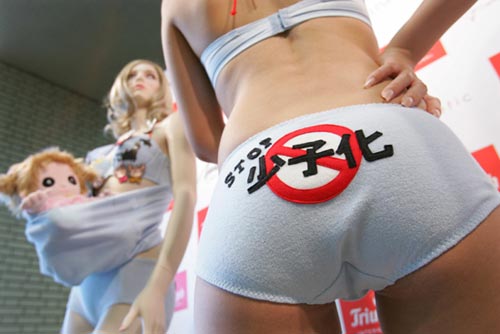研究发现:生孩子有利于日本游戏业发展 - Age1983
尽管任天堂前段时间创造了黑色星期五单周80万台Wii和DSi首发月50万台的傲人成绩,也纵使PSP、Xbox360和PS3的硬件销售状况也略有上升的趋势,各机种软件的销售状况也显得良好的态势,不过这都是特定时期下的一种回光,因为不得不面对的一个事实就是:销量上升并不能力挽日本游戏市场逐渐萎缩的狂澜!而继续造成日本游戏业没落的这种境况的根本原因居然是日本人口出生率的降低!
早在2005年初,日本厚生劳动省的人口问题研究机构就曾作出报告,由于目前日本人口出生率日益降低,甚至在未来将可能因为人口的极度减少而导致种族决灭,《朝日新闻》也曾以《200年后日本消亡》为题撰文呼吁国民关注偏低的人口出生率。目前日本人口出生率仅为1.35左右,在人口理论学上,要保持一个种族当前的人口数目,出生率不应低于2.08,由于人口的负增长,日本人口在2006年达到顶峰,并在2007年后逐步减少(下降1.6万),据推算,到2050年时,其人口总数将减少3000万,这是占当前日本总人口(1.2亿)的25%!
低出生率为日本社会带来的不仅是人口总数的减少,更还有劳动力恶化减少的人口老龄化问题,早在2000年日本就已是典型的老龄化社会了,人口的减少和出生率降低,再加上时间的推移,日本目前的养老金体系和大量减少的劳动力都将直接对日本的经济产生致命的冲击。
再回到游戏问题上来,上世纪90年代支撑日本游戏业最黄金时期的主要玩家群体,目前都已步入三十而立的阶段,游戏群体率先步入“老龄化”的危机阶段,他们因为需要兼顾生活等现实问题而对游戏的支持程度远不及往时,对游戏的热情也相当有限(我们掌机天堂的主要玩家群体也呈现了这个趋势),根据《日本产经新闻》的批露,由于出生率降低直接导致主力玩家群基数的减少,在新旧玩家群体总数呈减少态势的情况下,日本游戏市场也随之萎缩起来。在1997年顶峰后,曾连续多年萎缩的日本游戏业由于2005年NDS和PSP带来的新生力量而一度略有回暖,但不幸却在今年遭遇史上最严重的一次经济危机连带消费力的降低,日本游戏业将面对前所未有的严峻局面。
除了由人口出生率降低导致的宏观社会问题和经济问题对日本游戏市场的冲击外,行业的竞争也是另一方面的原因,根据《日本产经新闻》的报告,在业绩上居于全球首位的发行商位置仍然是由Activision和EA轮番占据,而非如日中天的任天堂。再加上近年来欧美甚至韩国游戏对日本市场的入侵,造成本土市场的分流,也间接迫使日本的游戏厂商不得不分流自身的业务去拓展欧美等海外市场,如近期的NBGI设立北美新公司等。这是这各种因素的合力,在家用游戏全球一体化的发展进程中,日本的游戏业确实步入危险的老年了!
